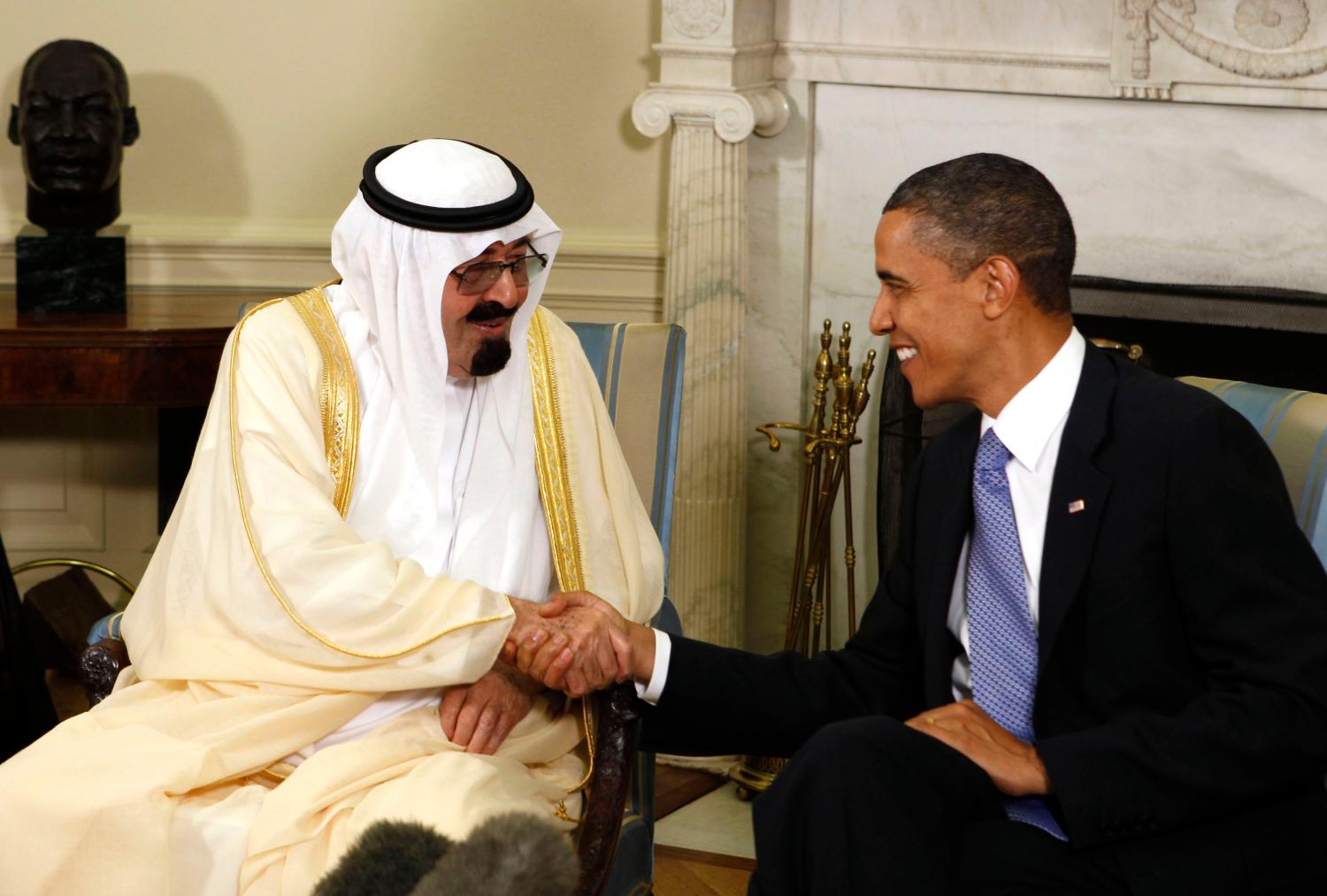U.S. relations with Saudi Arabia deteriorated further last year with major differences over Egypt, Syria and Iran. Bruce Riedel writes that President Obama should try to reverse this slide and regain Saudi trust. The risk of political unrest in Riyadh remains low, but bears watching.
 |
MEMORANDUM TO: President Obama |
Background
As I wrote a year ago, revolutionary change in Saudi Arabia remains possible but unlikely. The Saudi-American bilateral relationship has been seriously strained in the last year by the tensions underlying the Arab Awakening and by differences over Iran’s nuclear program. Saudi Arabia’s resources are also increasingly strained by the costs of countering the uprisings in the region. The United States has no serious option to head off a revolution in the Kingdom, if it is coming, because we are too deeply wedded to the House of Saud. The Saudis have no realistic alternative to the American alliance either.
The Saudis were very quick to welcome the military coup in Egypt last summer; they saw it as strengthening their own position at home by removing a dangerous example of revolutionary change in the Arab world. The return to autocratic rule in Cairo reduced the risks of upheaval in other Arab states. Riyadh rapidly put together a multibillion dollar aid program for Egypt and enlisted Kuwait and the United Arab Emirates to help fund it. The aid comes with no requirement that Egypt restore democratic rule. To the contrary, it is intended to undermine our efforts to use U.S. aid to help foster reform.
The Saudis also saw their interests advanced in Bahrain and Yemen, where Saudi-backed regimes have hung on to power despite popular demands for change and human rights. Saudi troops continue to back up the Sunni minority regime in Manama, and Saudi money sustains a weak government in Sana’a.
Riyadh is especially disappointed in our policy toward Syria. The Saudis want us to take robust steps to oust the Assad regime and replace it with a pro-Saudi Sunni government. At the same time, Riyadh is anxious that Washington is prepared to appease Assad’s backer, Iran, and conclude a deal with Tehran on its nuclear program. Senior Saudi officials have been increasingly outspoken in criticizing U.S. policy, as we saw in their refusal to take up a seat on the U.N. Security Council, although robust cooperation continues in private on counter-terrorism and other issues.
The burden of bucking up weak autocratic regimes is becoming more costly for Riyadh. Saudi officials say the Kingdom spent more than $25 billion subsidizing its allies in Jordan, Bahrain, Yemen, Pakistan and elsewhere in 2012, and expect that burden to rise to over $30 billion in 2013 with the addition of the Egyptian account. Almost all of this aid is budgetary support, so there is virtually no economic development return. The cost of supporting the counter-revolution in the Arab and Islamic worlds adds greatly to the challenges facing the House of Saud in the years ahead.
Recommendations
As I noted last year, we have no ability to avert revolutionary change in the Kingdom if it comes. In the interim, Washington and Riyadh do not share common values, but we do share some common interests such as containing Iran, fighting al Qaeda, and facilitating Assad’s departure from Syria. Neither of us has a viable alternative partner to secure those interests. While we will have to pursue our policy goals in the context of what is likely to be an increasingly disharmonious alliance, it should not be a divorce. You should continue to reach out to the King. Progress in the Israeli-Palestinian negotiations would especially help to improve ties with the Kingdom.
The Brookings Institution is committed to quality, independence, and impact.
We are supported by a diverse array of funders. In line with our values and policies, each Brookings publication represents the sole views of its author(s).




